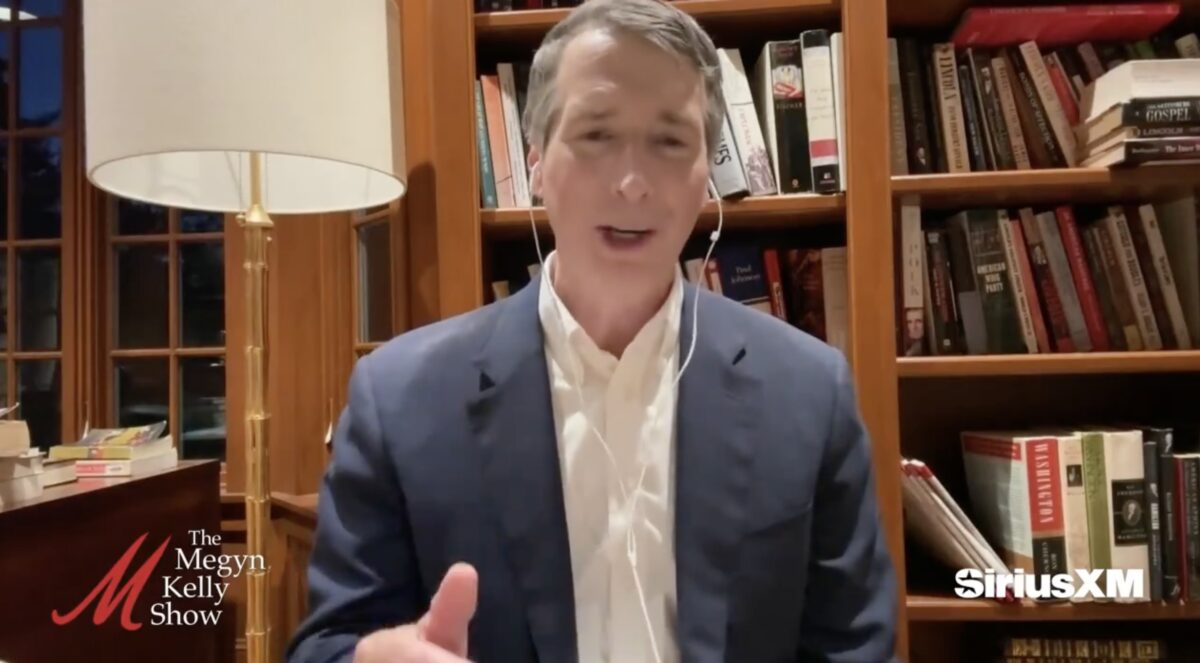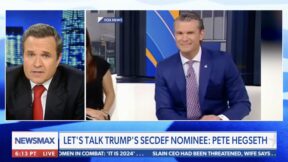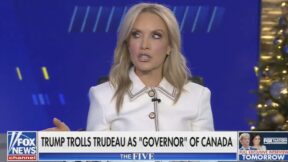NPR Public Editor Lambastes Outlet’s ‘Misleading’ and ‘Unfair’ Coverage of Allegations Rich Lowry Used Racial Slur

Screenshot via The Megyn Kelly Show
The public editor for NPR said the outlet’s reporting on unfounded allegations that National Review editor-in-chief Rich Lowry uttered a racial slur during an interview was “unfair” to the conservative journalist — and should not have been a story to begin with.
In a newsletter published on Friday, NPR’s public editor Kelly McBride wrote about NPR’s coverage that followed Lowry’s September 17 interview. While discussing Haitian migrants in Springfield, Ohio with host Megyn Kelly, Lowry mispronounced the words “Haitian migrants” in a way that made him sound like he was saying the N-word. The backlash was fast and widespread, with several social media users even slowing the video clip down to prove that Lowry said the slur. The clip and the accusation went viral, and Lowry said he lost out on speaking opportunities because of it.
But Lowry vehemently denied that he uttered the slur, explaining that this was an unfortunate mispronunciation. Several others came to his defense, but the story had already spread like wildfire on social media. Even if the NPR story intended to cover the social media firestorm, not the slur itself, as McBride wrote on Friday, writing a story about a “verbal fumble” shouldn’t have been a story at all.
In her introduction, McBride put the story in a nutshell, calling Lowry’s phrasing a “verbal fumble” and that “no slur was intended.” She also added: “A reporter for NPR took on the story anyway. The first version that NPR published was, by NPR’s own admission, unfair to Rich Lowry, the National Review editor at the center of the story – who did not actually say the slur.”
The first iteration of the headline took the claims about Lowry credulously: “Conservative editor-in-chief appears to use racial slur to refer to Haitian migrants.”
McBride pointed out that the piece was updated several hours later, but not correction or editor’s note was issued explaining why.
McBride followed up with a more in-depth look into what happened behind the scenes at NPR:
Hearing the clip of Lowry speaking, it’s easy to see why people did a double-take. But we replayed it many times and heard what others eventually concluded: that Lowry bungled “migrants” and “immigrants” together. In fact, NPR media correspondent David Folkenflik tweeted out exactly that conclusion two and half hours before the NPR story was published, although his colleague who wrote the story did not see it.
We wondered: Why run a story at all?
NPR Vice President and Executive Editor Eva Rodriguez said C Mandler, the reporter who wrote the NPR story, pitched it after noticing a swirl of discussion about it on social media. “This was a moment that was garnering intense audience focus on social media,” Rodriguez told us in an email. “The purpose of this story was to respond to that audience interest with the relevant facts and context for them to better understand it.”
Folkenflik told us he didn’t think there was a story there.
“I think people should be dinged for and reported on what they actually do,” Folkenflik said, adding that he decided to acknowledge the incident on social media because it was in the media space and gained a fair amount of attention.
The headline on NPR’s original story currently reads: “Conservative editor-in-chief says mispronunciation led to accusations of using slur.” You can read the full note here.




